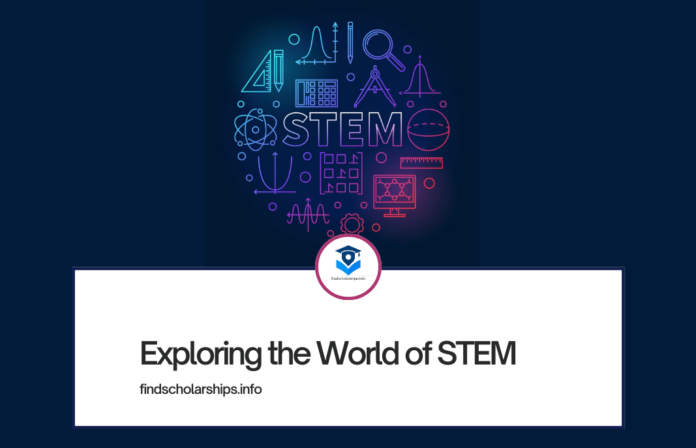Exploring the World of STEM. The fields of Science, Technology, Engineering, and Mathematics (STEM) are driving forces behind innovation and progress in today’s world. STEM careers offer a vast array of opportunities and are essential for addressing global challenges. This guide delves into the importance of STEM, career prospects, educational pathways, and the future of STEM fields.
What is STEM?
STEM stands for Science, Technology, Engineering, and Mathematics. These disciplines are interconnected and focus on solving real-world problems through research, innovation, and application. STEM fields encompass a wide range of careers, from healthcare and environmental science to software development and mechanical engineering.
The Importance of STEM
1. Driving Innovation
STEM fields are at the forefront of technological advancements and innovation. They play a critical role in developing new technologies, medical breakthroughs, sustainable energy solutions, and more.
2. Addressing Global Challenges
STEM professionals are essential in tackling some of the world’s most pressing issues, such as climate change, healthcare access, food security, and cybersecurity. Their work helps create sustainable solutions and improve quality of life.
3. Economic Growth
STEM industries are significant contributors to economic growth. They generate high-paying jobs, drive industrial advancements, and support a knowledge-based economy.
Career Opportunities in STEM
1. High Demand Jobs
STEM careers are in high demand across various industries. According to the U.S. Bureau of Labor Statistics, employment in STEM occupations is projected to grow significantly faster than non-STEM occupations.
2. Diverse Career Paths
STEM offers diverse career paths, including:
- Biomedical Engineer: Developing medical devices and technologies.
- Data Scientist: Analyzing complex data to inform business decisions.
- Environmental Scientist: Studying and addressing environmental issues.
- Software Developer: Creating software applications and systems.
- Mechanical Engineer: Designing and building machinery and equipment.
3. High Earning Potential
STEM careers often come with high earning potential. Professionals in these fields typically earn higher salaries compared to non-STEM careers, reflecting the specialized skills and knowledge required.
Educational Pathways in STEM
1. Early Education and Engagement
Early exposure to STEM subjects through school programs, extracurricular activities, and STEM camps can spark interest and build foundational skills.
2. Undergraduate Degrees
Pursuing a bachelor’s degree in a STEM field is a critical step. Many universities offer specialized programs in areas such as engineering, computer science, biology, and mathematics.
3. Graduate Studies
Advanced degrees, such as master’s and doctoral programs, allow for specialization and open doors to research, academia, and higher-level professional roles.
4. Online Education
Online degree programs and courses offer flexibility for students and professionals looking to enhance their STEM knowledge and skills.
Scholarships and Funding Opportunities
1. STEM Scholarships
Numerous scholarships are available to support students pursuing STEM degrees. These scholarships can cover tuition, books, and other educational expenses.
2. Grants and Fellowships
Research grants and fellowships provide funding for students and professionals engaged in STEM research and projects.
3. Internship Programs
Many organizations offer paid internships to STEM students, providing valuable hands-on experience and financial support.
The Future of STEM
1. Emerging Technologies
The future of STEM is shaped by emerging technologies such as artificial intelligence, robotics, biotechnology, and renewable energy. These advancements will continue to transform industries and create new career opportunities.
2. Interdisciplinary Collaboration
STEM fields are increasingly interdisciplinary. Collaboration between different STEM disciplines, as well as integration with non-STEM fields, will be crucial for innovation and solving complex problems.
3. Global Impact
STEM professionals will play a vital role in addressing global challenges. Their work in areas such as sustainable development, public health, and digital transformation will have far-reaching impacts on society and the environment.
Final Thoughts
STEM fields offer exciting and rewarding career opportunities that are essential for driving innovation, addressing global challenges, and supporting economic growth. With diverse career paths, high earning potential, and a bright future shaped by emerging technologies, pursuing a STEM education is a valuable investment. Explore the various educational pathways, seek out scholarships and funding opportunities, and embrace the endless possibilities that a career in STEM can offer. Whether you’re just starting your educational journey or looking to advance your career, the world of STEM awaits you with open arms and limitless potential.



